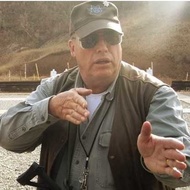2 June 12
As he, for the last time, retired from Washington DC to his estate in South Carolina, trusted advisor to President Franklin D Roosevelt, Bernard Baruch, was distressed and desponding. With the new President, Harry S Truman, he had lost the trusted stature he, for decades, had enjoyed under his former boss.
The year was 1945, and World War II was suddenly over, without the costly invasion of Japan’s home islands that virtually all military planners had considered obligatory in order to achieve the “unconditional surrender” that had been America’s oft-stated goal since Japan’s surprise attack on Pearl Harbor in 1941. Amphibious invasions of Iwo Jima and Okinawa provided ominous warning of the ultimate cost of such an Invasion.
But, in a flash (literally!), the heretofore super-secret “atomic bomb” radically altered world history, and America had a monopoly!
Baruch, along with most of the American scientific community, frantically urged President Truman to put together an international treaty banning the atomic bomb. Truman’s reaction was lukewarm. Stalin rejected the notion out of hand, his own secret nuclear program well on the move.
Other advisers, mostly military, assured Truman that America’s nuclear monopoly would last at least twenty years. History would prove them all perilously delusional!
In any event, Baruch and his colleagues were unceremoniously brushed aside!
In a subsequent interview, Baruch said bitterly, “Today, we are in the midst of a Cold War” Instantly, the heretofore unheard-of, and patently ridiculous, term, “Cold War,” went viral. It has been an integral part of the English Language ever since!
Today, Baruch is known for little else! He died in 1965 at the age of 94.
Over the post-war years, we lived through patently “hot” wars on the Korean Peninsula, Vietnam, the Mideast, as well as dozens of lesser conflicts, all of which have become collectively known as “war during ‘peace.’” All, thus-far, have involved only “conventional” weapons.
Such curious definitions and phases are of far more interest to historians, than to players. For those of us who actually participate, at the most basic level, “war,” big or small, or by any other name,… is still war!
“When the time is ripe, war must come, reason or no reason, for justifications are invariably fictitious. War is, in short, a permanent human obligation.”
William James
/John



